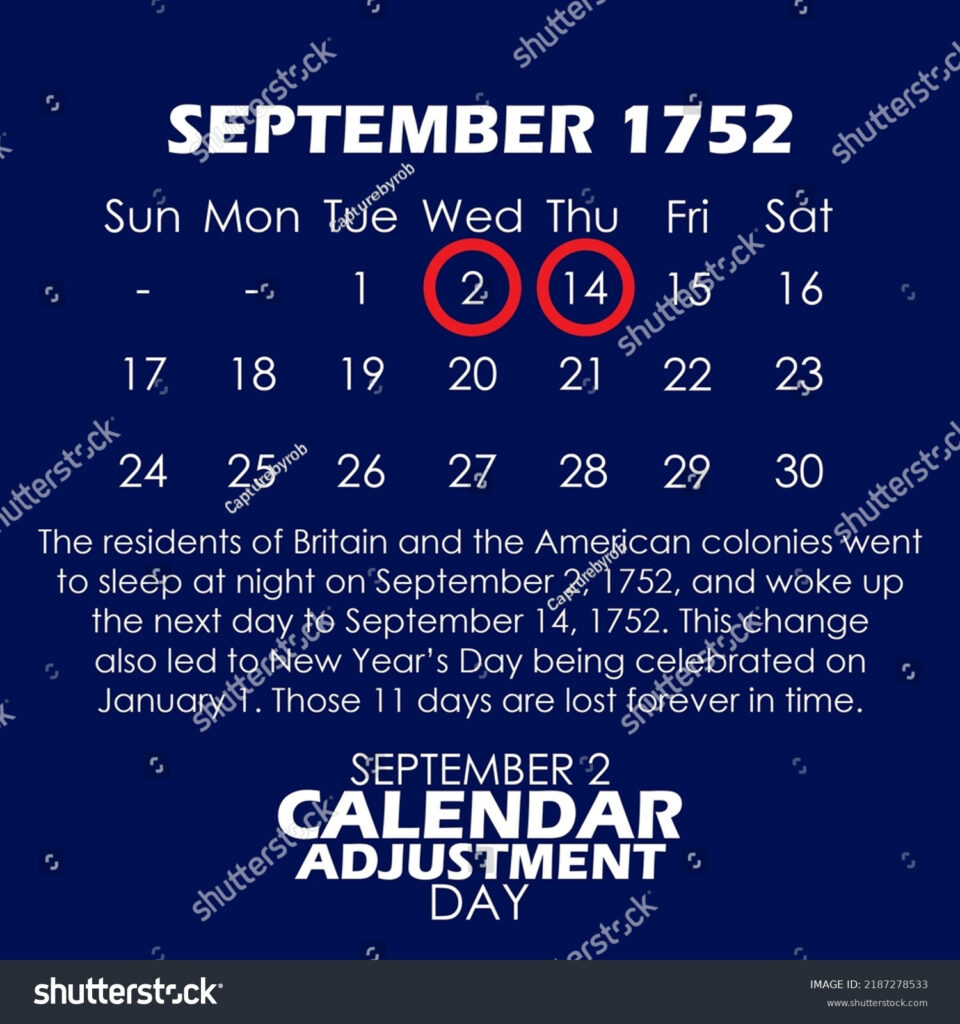In September 1752, a major calendar reform took place in the British Empire and its colonies. Prior to this reform, the Julian calendar, which had been in use since Roman times, was used in England and its territories. However, the Julian calendar had a flaw in its calculation of leap years, which caused it to gradually drift out of sync with the solar year. By the 18th century, the Julian calendar was 11 days behind the solar calendar.
The British government decided to align the calendar with the solar year by adopting the Gregorian calendar, which had been introduced by Pope Gregory XIII in 1582. The reform involved skipping 11 days in September 1752 to bring the calendar back in line with the solar year. This meant that the day after September 2, 1752, was September 14, 1752.
History Of Calendar September 1752
Impact Of The Calendar Reform
The calendar reform of September 1752 had significant implications for the people of England and its colonies. Many people were confused and outraged by the sudden disappearance of 11 days from the calendar. Some believed that they had been robbed of 11 days of their lives, while others saw it as a way to modernize and improve the accuracy of the calendar.
Despite the initial confusion and resistance, the adoption of the Gregorian calendar eventually became widely accepted and is now used by most countries around the world. The calendar reform of September 1752 was a crucial step in the standardization of timekeeping and the establishment of a more accurate and reliable calendar system.
